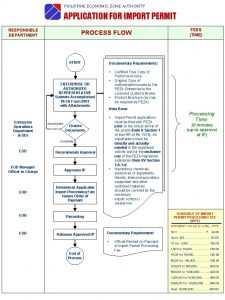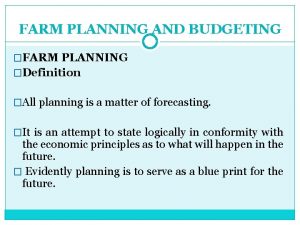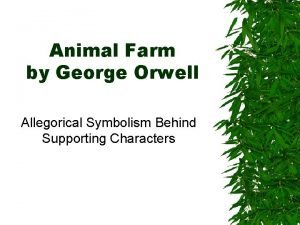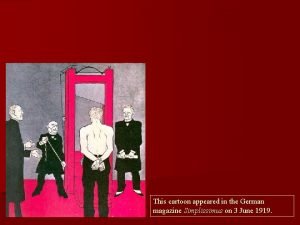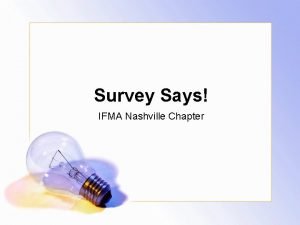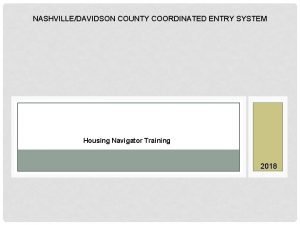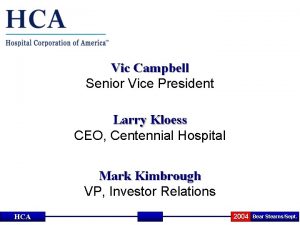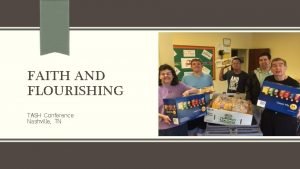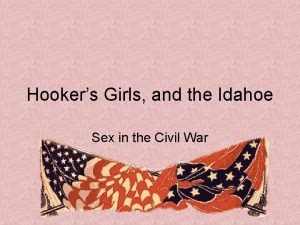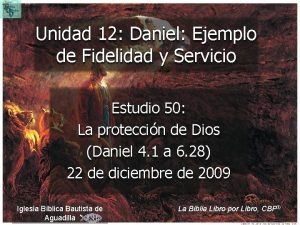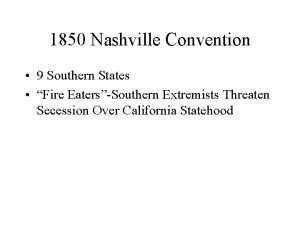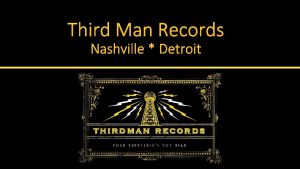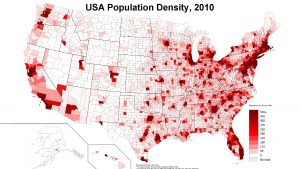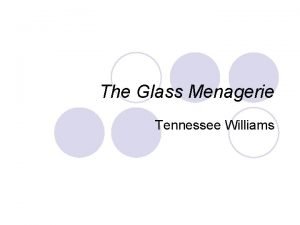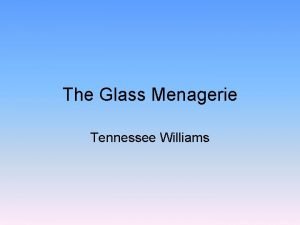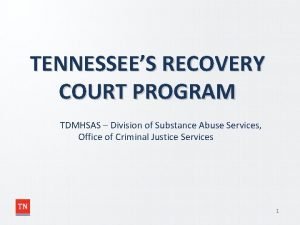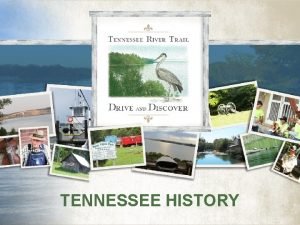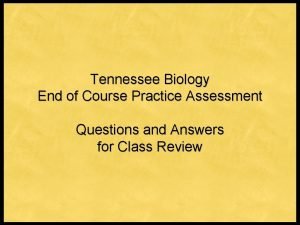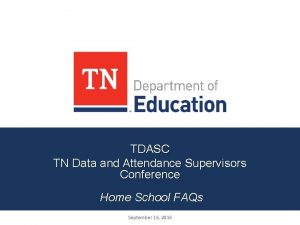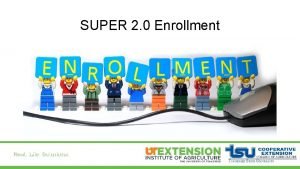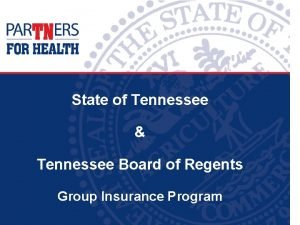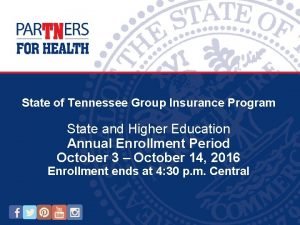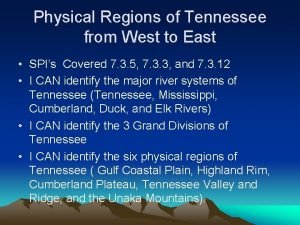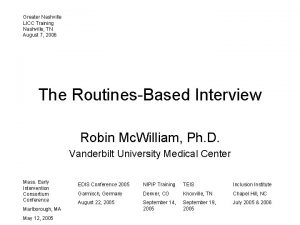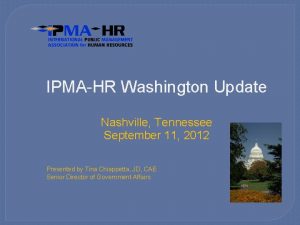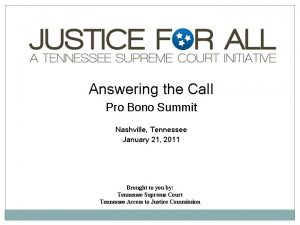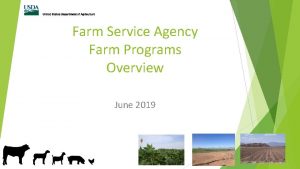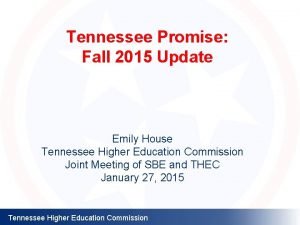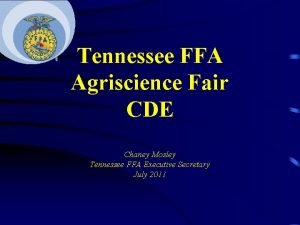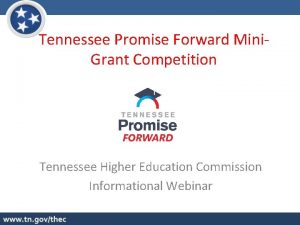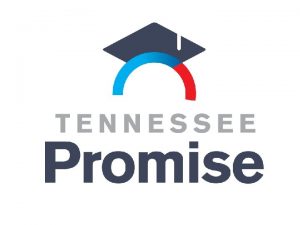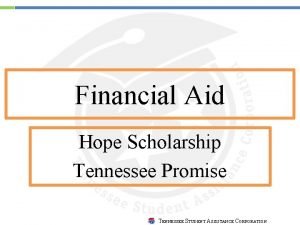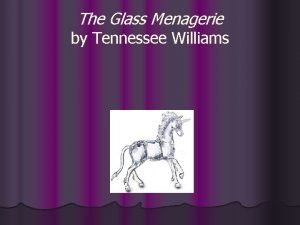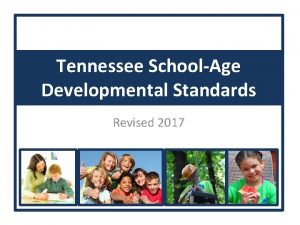Farm Analysis Seminar Nashville Tennessee June 13 2011

































- Slides: 33

Farm Analysis Seminar Nashville, Tennessee June 13, 2011 Prepared By: Vance W. Cook Attorney at Law Princeton, Kentucky 42445 270 -365 -6003 vancecook@bellsouth. net www. vancecooklaw. com

Topics for Presentation • Highlights from 2010 tax law changes • Planning considerations for 2011 -12 • Most common estate planning mistakes

Federal Estate Tax Exclusion and Tax Rate History Year Exclusion Amount Top Tax Rate 2001 $675, 000. 00 55% 2002 $1 Million 50% 2003 $1 Million 49% 2004 $1. 5 Million 48% 2005 $1. 5 Million 47% 2006 $2 Million 46% 2007 $2 Million 45% 2008 $ 2 Million 45% 2009 $3. 5 Million 45% 2010 Repealed 0% 2011 $5 Million 35% 2012 $5 Million 35% 2013 ? ?

Federal Estate Tax • $5 Million Exclusion Amount for 2011 -12 • Max. Rate of 35% for 2011 -12 • Stepped Up Basis for 2011 -12 • Portability (of Exclusion Amount) • Option for 2010 Deaths • For deaths in 2010, extension of time for filing returns, disclaimers, and paying estate tax

Portability of Exclusion Amount • Allows a surviving spouse to elect to utilize unused exclusion amount for predeceased spouse • Caution: Use requires election on timely filed Form 706 of first spouse to die • Provision sunsets on 1/1/2013 • Utility of this provision limited since both spouse’s deaths must occur in 2011 -12

Option for Deaths in 2010 • For deaths occurring in 2010, election is available to apply: 1) The estate tax based on new $5 M exclusion, 35% tax rate, and stepped up basis; or 2) No estate tax and modified carryover basis rules under the old law

Federal Gift Tax • 2011 -12 Gifts: $5 Million (Lifetime) Exclusion • 35% Maximum Tax Rate • Annual Exclusion Amt. remains at $13, 000 per Donee for 2011

Generation Skipping Transfer Tax (GST) • $5 Million (Lifetime) Exclusion for 2011 -12 • 35% max. Tax Rate for 2011 -12 • For 2010 1) $5 Million (Lifetime) Exclusion 2) Tax rate of 0% for 2010

What happens after 2012? • Congress makes 2010 changes permanent • Congress allows 2010 tax law changes to sunset (back to $1 M exclusion and 55% tax rate) • Compromise is reached (example $3. 5 M exclusion and 45% tax rate) • Planning remains uncertain for next two years

Planning suggestions for 2011 -12 • Assume return to $1 M exemption in 2013; plan accordingly • Monitor FMV of client assets • Review legal title for all assets • Review ownership and beneficiary designation for life insurance and IRA’s • Execute Wills and Trusts to take advantage of exclusion amount (whether $5 M or $1 M)

Planning suggestions for 2011 -12 • Execute Wills and Trusts to take advantage of exclusion amount (whether $5 M or $1 M) • Make sure H & W both own assets which can be used to take advantage of exclusion (avoid survivorship, if possible)

Estate Plan: Exclusion amount in Trust; Excess passes to Spouse as Marital Deduction • If combined assets of H & W $2 M-$5 M: 1) place ½ assets in both spouses’ names 2) Execute Will/Trust for both spouses to hold exclusion amount upon death of first spouse 3) Surviving Spouse has use of Trust assets for life, but trust assets not included in taxable estate for surviving spouse

Estate Plan 1 H predeceases W in 2013. $2 M Total Assets. Assume $1 M exclusion amount in 2013. H’s Estate $1 M assets passes to Family Trust for W’s lifetime Family Trust All income to W for life and discretionary principal distributions for W. Assets pass to kids after W’s lifetime, no estate tax due Marital Deduction W’ s Estate $1 M assets H’s assets in excess of $1 M pass to W outright W’s assets pass to kids at W’s death. No federal estate tax due. This plan equalizes assets so both H & W take advantage of exclusion amount. Without planning, kids pay $550 K federal estate tax.

Estate Plan 2 Assume H & W total assets $5 M or less. Planning for $5 M exclusion, but with Disclaimer Trust H’s Estate. $3 M assets. H’s Will leaves all to Spouse, but if Spouse disclaims, disclaimed assets pass to Family Trust All income to W for life; discretionary principal distributions for W. Assets pass to kids after W’s lifetime, no estate tax due W also has $2 M of assets. W must file disclaimer within 9 months after H’s death. If exclusion amount remains at $5 M, W inherits all of H assets, no Trust needed. But if exclusion amount returns to $1 M, W can disclaim sufficient assets to ($1 M) fund Family Trust.

Consider Gifting in 2011 -12 • $5 M Gift Tax exclusion available for 2011 -12 • Exclusion has never been higher, could be repealed in 2013 • Future appreciation avoids estate tax • Disadvantage: Donees take carryover basis; No basis step up after parents’ deaths. • Also consider establishing GST Trust for children. Allocate GST exemption for gifts. • No Estate tax due after children’s lifetime. • CAUTION: DO NOT FORGET ABOUT STATE GIFT TAXES (TN)

Consider Gifting in 2011 -12 • Cash is best gift; full basis for gift; However, most farm families are land rich and cash poor • Consider transferring land to LLC or LP and transferring non-voting interests or minority interests to children to take advantage of annual exclusion gifts • Document FMV with appraisals & entity valuation • If valuation discounts are taken, file Form 706 to begin running of statute of limitations • Beware of parents maintaining control of entity until death; IRS may attack on estate tax return § 2036(a)

Another Gifting Plan • H establishes irrevocable discretionary trust for W (See PLR 199903040) • H transfers H’s assets to trust, H & W elect to split gifts • W receives income and discretionary principal for ascertainable standard • File Form 709 to report gift • Future appreciation removed from taxable estate of H &W • Disadvantage: kids do not obtain stepped up basis at death of W

Consider Crop CRUT for retiring Farmer • H & W establish CRUT or CRAT reserving income for lifetime and designating charitable beneficiary • Unsold grain transferred to CRUT and sold by Trustee; Grain must not be contracted for sale prior to transfer to trust • Trustee sells grain & re-invests proceeds • Sale of grain by Trust not subject to income tax or SEP • No separate charitable income tax deduction if crop inputs deducted by H & W • See PLRs 9413020, Rev. Rul. 55 -531, Rev. Rul. 55 -138

Most Common Estate Planning Mistakes I Have Observed • Failure to provide sufficient assets to fund credit shelter trust • Summary of probate vs. non-probate assets • Failure to keep estate plan current with tax law changes • Failure to properly draft QTIP Trust language • Failure to seek appropriate counsel • Failure to use appropriate tax clause • Overuse of LLC’s • Failure to designate beneficiary for IRA’s • Case study: Post Mortem Planning: What not to do

Failure to provide sufficient assets to utilize exclusion amount • The best drafted estate plan is worthless if the decedent has no assets to capture exclusion amount. • Due diligence requires examination of all client assets to determine legal ownership. • Re-titling assets and changing beneficiary designations is often more time consuming than drafting the estate plan.

Failure to provide sufficient assets to utilize exclusion amount • Probate vs. Non-probate assets • Probate assets consist of individually owned real property and personal property which do not have a separate beneficiary designation. Probate assets generally pass pursuant to the Decedent’s Will • Non-Probate assets typically pass to a surviving joint owner or designated beneficiary

Failure to properly draft QTIP Trust • A properly drafted QTIP Trust qualifies for the federal estate tax marital deduction. • The QTIP Trust must provide that all trust net income will be distributed to surviving spouse for life. Undistributed trust net income at spouse’s death must be distributed to estate. • No Trustee discretion allowed with respect to income distribution.

Failure to revise estate plan when estate tax laws change • Consider common estate plan when exclusion amount was $600 K • Will leaves to children from prior marriage “amount equal to federal estate tax exemption ($600 K when Will was drafted in 1996) • Excess passes to surviving spouse outright • In 2011, kids would receive up to $5 M before spouse receives any property • Wills and Trusts should be reviewed at least every 4 -5 years

Failure to seek appropriate counsel to prepare estate plan • Most general practice attorneys in rural communities do not understand the federal estate tax laws • Unfortunately, many attorneys will attempt to prepare an estate plan when they should engage co-counsel • If a mistake is made, the attorney should have malpractice insurance, but you will have to make a claim against your attorney, and possibly file a lawsuit for economic damages

Failure to use proper tax payment clause in Will • Many Wills use a generic tax clause which says “Pay all death taxes from residuary estate” • So , the taxes get paid out of the probate estate • However, the death taxes are calculated based on all assets included in taxable estate, not just probate assets • Beneficiaries receiving non-probate assets may not have to pay any taxes • This can potentially wipe out bequests under the Decedent’s Will • Consider blended families where Decedent has children from prior marriage and new spouse • If significant assets pass as non-probate assets, better choice may be to use apportionment tax clause

Overuse of LLC’s • Frequently estate planning attorneys not familiar with agriculture will convince client to form LLC to carry on farming operation • LLC is now operator for USDA purposes • LLC only eligible for one $40 K payment limit for USDA purposes • Joint operation operating as general partnership may qualify for multiple limits

Over Use of LLC’s JONES FARM GEN. PP. H W C Operating as a general partnership, Jones Farm GP may be able to qualify for three USDA payment limits ($120 K). JONES FARM, LLC H W C Operating as an LLC, Jones Farm LLC can only qualify for one USDA payment limit($40 K). Potential loss of $80 K in annual revenue. If the client desires the liability protection provided by an LLC, H, W and C can establish separate single member LLC’s to be partners in the GP.

Failure to Designate Beneficiary (DB) for IRA • Naming a spouse as DB allows for rollover and continued tax deferral • Naming a child may allow the child to withdraw over life expectancy • Naming Estate as DB requires payout in no more than five years • Failure to name a DB usually defaults to Estate being DB and five year payout • Relief may be available if spouse is sole beneficiary of Estate (PLRs 8911006; 9402023; 9351041. Also see “Life and Death Planning for Retirement Benefits, ” Third Edition; by Natalie Choate)

Case Study: What Not To Do • H & W have Wills with basic credit shelter trust and marital deduction language • H & W have $1. 2 M in assets • Each spouse had $600 K exclusion amount available • W dies first • Attorney and CPA fail to review Deeds • Turns out all assets held by H & W as JTWROS • So, all assets pass to H as surviving owner

Case Study: What Not To Do • W has no assets to fund credit shelter trust • H now has $1. 2 M in assets and $600 k exemption amount • Easy solution was for H to disclaim W’s ½ interest in jointly owned real estate • The disclaimed ½ interest then falls into W’s estate and can be used to fund credit shelter trust. Problem solved, right?

Case Study: What Not To Do • Attorney and CPA decide H should transfer all real estate to general partnership (GP) in which Son owns ½. H & W’s Trust for H also own ½ of GP • H has just made taxable gift to Son • H dies shortly thereafter • Forms 706 prepared poorly claiming 2032 A discount for W’s and H’s Estates • IRS audits Forms 706, reviews deeds, determines neither W’s nor H’s Estates qualify for 2032 A valuation discount; IRS wants $

Case Study: What Not To Do • Client forced to make malpractice claim against their first attorney (a friend) • After 2 years of brief writing and going to IRS Appeals conference, IRS settles for $30 K tax deficiency. • Attorney’s malpractice insurance paid tax deficiency and attorney fees to fix the situation.

Case Study: What Not To Do • The initial attorney had three opportunities to fix the situation • First, attorney should have reviewed client’s deeds to discover survivorship provision • Second, attorney should have advised H to file qualified disclaimer for ½ interest in jointly owned real estate. Reg. § 25. 2518 -2(c)(4)(i) • Third, even after missing opportunity to file disclaimer, if H had not transferred real estate to GP, H could have avoided entire estate tax liability through use of 2032 A valuation discount
 What is peza 8105
What is peza 8105 What is farm planning
What is farm planning Harmouns
Harmouns What does pinchfield farm represent
What does pinchfield farm represent Simplicissimus cartoon june 1919 analysis
Simplicissimus cartoon june 1919 analysis Egg donation nashville
Egg donation nashville Ifma nashville
Ifma nashville Greensboro sit ins
Greensboro sit ins Coordinated entry system nashville
Coordinated entry system nashville Victor campbell nashville net worth
Victor campbell nashville net worth Teach them diligently nashville
Teach them diligently nashville Elephant eating habits
Elephant eating habits Nashville tash
Nashville tash Hookers nashville tn
Hookers nashville tn Salmo reina valera 23
Salmo reina valera 23 Nashville convention 1850
Nashville convention 1850 Hope lodge
Hope lodge Tmr records
Tmr records Nashville hockey club
Nashville hockey club Issac
Issac Population distribution
Population distribution Themes in the glass menagerie
Themes in the glass menagerie The glass menagerie ppt
The glass menagerie ppt Tennessee drug court programs
Tennessee drug court programs 3 major landforms in tennessee
3 major landforms in tennessee Tennessee state seal
Tennessee state seal Biology (tennessee) answers
Biology (tennessee) answers Tennessee attendance supervisors conference
Tennessee attendance supervisors conference Super2.tennessee
Super2.tennessee Www.tennessee.deltadental/stateoftn
Www.tennessee.deltadental/stateoftn Tennessee group insurance
Tennessee group insurance Plastic theatre tennessee williams
Plastic theatre tennessee williams Tennessee physical regions
Tennessee physical regions Roadmap to success
Roadmap to success
